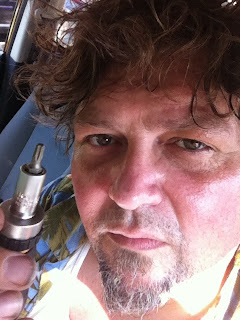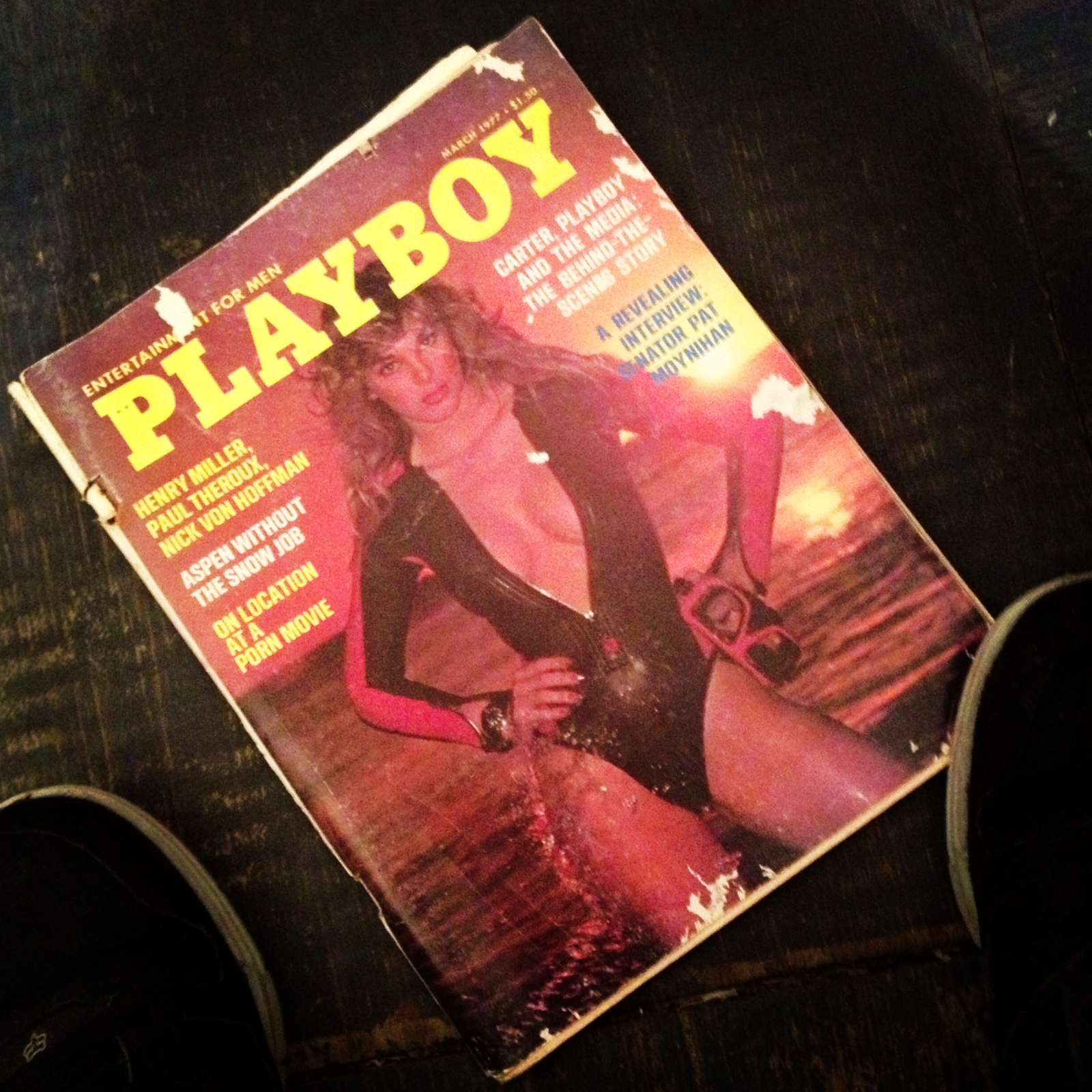My Little Beard
The speaker was an Eastern European in his late 70s or early 80s. I responded by turning in his direction and staring blankly. I like to think I blinked once, showing bewilderment and a total loss for time and place. I probably didn't but in the movie of my life that accompanies my memories, I did.
I'd seen this man, whose name I never got, both during and after my daily swim for more than a week. We'd nod to one another in the pool, me sharing and then usurping his lane as he ended his workout and moved to the whirlpool.
Maybe the man knew how difficult he could be to understand. Old world foreigners, especially those who have spent decades in America, are particularly sensitive to language barriers real and imagined. I had yet to acknowledge he'd said anything, although I'd clearly heard him and knew he was addressing me.
"Your beard," the man repeated himself carefully, gesturing to his chin and pulling an imaginary triangle from his face. "I like your little beard."
I understood the words the first time but, being wet and naked, could not fathom why they were uttered. My immediate thought was they followed another observation, or were part of a tangential conversation. Maybe he had just been discussing my beard with someone else and was relating to me the story of him liking my beard. The fact was, it was too hard a sentence to comprehend. There was no foreplay. No "Hi, my name is Frederich," or "Gee, it's unseasonably cold." There was no reference to the fact that we'd never spoken before or communicated beyond a nod. It was as if I'd been teleported in after the conversation started, had missed the first part and joined as it moved on to the compliment stage.
Since this last explanation made the most sense, I continued to work on it, trying to account for the lost time between the conversation's beginning and now. It must have taken longer than I'd intended, because Frederich (which is how I now thought of him) elaborated further.
"When you come out of the water," he said. Again, making triangles of varying lengths from his chin to somewhere around the middle of his sunken old-man chest. "It looks... I like it. I like the way the water looks on your little beard."
After spending weeks experimenting with the swimming schedule, I found a sweet spot after the lunch rush but before school let out. If I could hit the pool between 1:50 and 2 p.m. I could share a swimming lane with this old man just before he quit for the day. Anyone who has ever had to break into the swimming lane pecking order at a YMCA is familiar with the ordeal it sometimes can be. I was grateful to Frederich for not being a jerk about sharing his lane.
"Well, thank you," I said as genuinely as possible.
The words came out flat. Certainly flatter than I'd meant, but I was still caught up in the possibility I'd literally missed part of the conversation, imagining what it must be like to have Alzheimer's or some other horrible disease where you appear conscious but aren't always aware. I'm told what keeps me from engaging is less affliction and more personality flaw. But I have my appeal in to the +American Psychiatric Association and hope to have Utter Self Absorption (U.S.A.) added to the next edition of the DSM.
He smiled at me, nodded his head three times in a jittery, aged way and said, "Well, heh... it's a good beard."
There really aren't that many more ways to take the conversation, but still I blame myself for merely repeating my thanks. As someone afflicted with U.S.A., I was already composing my Tweet about the conversation. I got some miles out of it as well, laughs in person and LOLs supposing I'd survived a close call with some sort of evil German reverse scalper. People enjoyed imagining Frederich as a beard-collecting maniac.
The next day, I heard Frederich recounting fighting for the French during WWII. Unfortunately, he was addressing a fellow WWII veteran who wasn't that interested in rehashing war stories or who'd already heard it. Whatever the reason, he didn't ask important questions or try and extract elaborations in any way.
Or it could have been that he was startled.
"We're you in the Army?" Frederich asked another very old man. "When I was fighting for the French, we got one liter of wine per day."
Again, starting his conversation cryptically in the middle, Frederich just got a mild response of vague agreement. The listener acknowledged the fact that he'd been spoken to, but nothing else.
"How did you get to France?" I wanted to ask. "Were you liberated? Did you defect? Desert? Were you a Partisan?!?!?"
Now an outsider, because I am not a veteran and did not make enough of an effort in the beard conversation, I could only imagine his circumstances. In my head, he was either a German Jew who found work with the Partisans or a Nazi who switched sides late in the war. Because I could not bring myself to ask, I had to assign him hero or villain status. His life was one of those gut-wrenching movies filled with loss, betrayal and blood.
Nearly 70 years ago, this person was involved in something horrific. He began a journey in the Austrian region of Europe and was nearing its end at a YMCA in Easton, Maryland, swimming every day in a floppy red bathing cap and startling naked strangers by starting conversations in the middle.


Comments